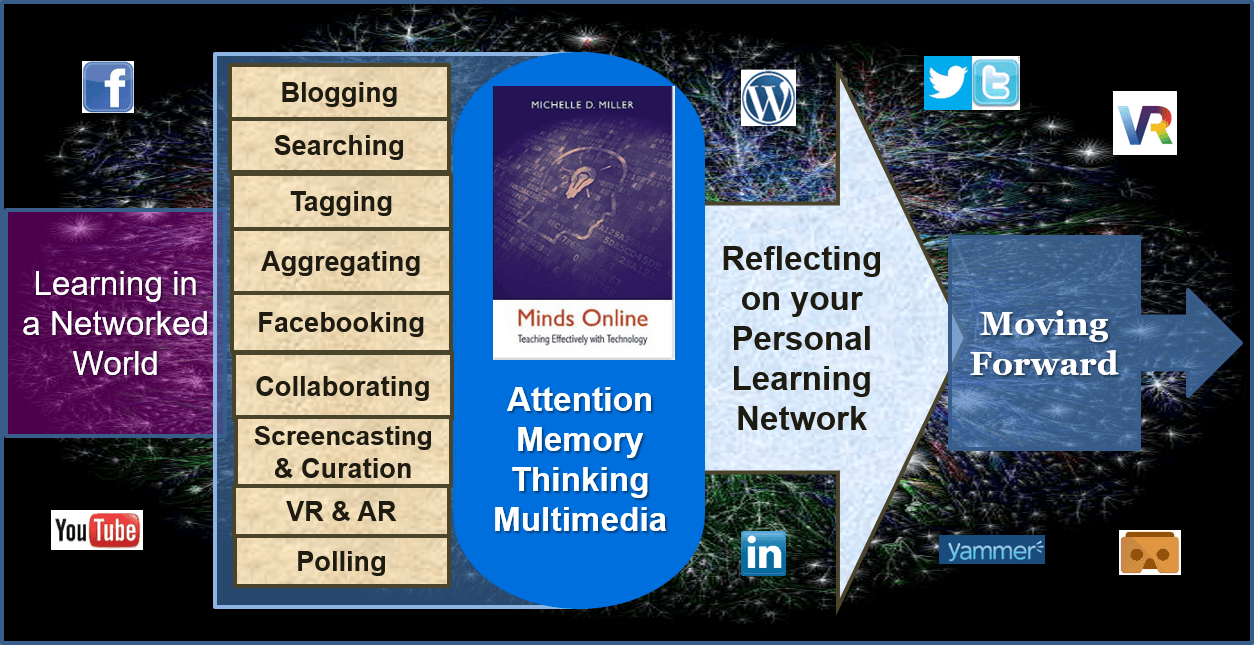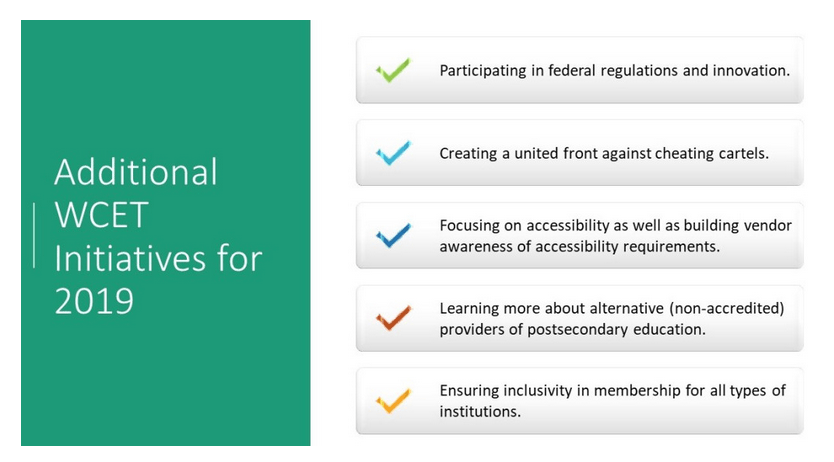This past week, we started the Winter term of Northeastern’s EDU-6323 – Technology as a Medium for Learning. I have twenty-some students from a mix of K12, higher ed, health education, and corporate training in this Masters level course. In addition to work in our course LMS, we also are tweeting to the hashtag #EDU6323.
A course like this makes it easy to focus just on the tech stuff – and there is certainly plenty in each of the weekly focus areas to draw our attention. But a post last week from Bryan Alexander has got me thinking. Bryan is teaching a course similar to this one for Georgetown University, and he noted that his course explores:
“…a series of major and emerging topics, including: social justice, technology, and education; access and equity; the relationship between pedagogy and technology; asynchronous and synchronous technologies; globalization versus the local; assessment; campus support structures and sustainability; student agency. Technologies addressed include the learning management system (LMS), mobile devices, podcasting, video, automation, social media, open education resources (OER), and gaming.”
My course has been more focused on the cognitive side of learning, using Michelle Miller’s book to help drive smart use of edtech. Yet the idea of “social justice” as an underlying component is intriguing! One of the groups I follow is WCET, a national non-profit which brings together colleges, universities, higher education organizations, and companies to collectively improve the quality and reach of technology-enhanced learning programs. The WCET Steering Committee released it’s 2019 initiatives message last week, noting that they will focus on the following areas in 2019:
Sounds much more social justice-oriented than tech-oriented!
I also read last week Audrey Watters’ post on the business of ed-tech trends. She noted that much of the funding of edtech companies was focused on “tutoring” – which really translates to test-prep. Further in her post, she noted:
“…The industry’s fixation on “the future of learning” certainly seems to prevent many people from taking a good look at the past. And my, isn’t it always fun to revisit some of ed-tech’s darlings of yore…In 2017, for example, Edsurge informed its readers that “MissionU Says It Can Replace Traditional College With a One-Year Program.” One year later, in May of this year, Edsurge informed its readers that MissionU would cease operations. (You can see a list of all the companies that joined the ed-tech “deadpool” here.) In 2012, Wired Magazine proclaimed that Udacity “could change higher learning forever.” Techcrunch asserted that Udacity would “end college as we know it.” Udacity’s founder Sebastian Thrun predicted that “in 50 years, there will be only 10 institutions in the world delivering higher education and Udacity has a shot at being one of them.” This year, Udacity ended its money-back guarantee. It upped the price of its “nanodegrees.” (Its MOOC competitor edX also announced this year that many of its courses would no longer be free.) Udacity laid off about a quarter of its staff mid-year. And its CEO stepped down.”
Good points!
Yet, one cannot start a course on technology as a medium for learning without having a fixation on the future of learning. My hope is that my students, through their sharing on Twitter and in discussions, will push us all to explore what could be rather than what is. This last week in Jarche’s Coffee Club blog, Cat Barnard shared a post from her UK company on Working the Future. The five key future of work trends she noted were:
- Welcome to the age of attention deficit
- Gen Z goes large
- Mass career customization
- Growing need for greater emotional agility and resilience in the workplace.
- Continuing rise of in-work poverty
She also noted work-related themes her company is tracking, including:
- Advances in technology
- The end of nine-to-five
- Transformative social change
- Inter-generational working
- Global connectivity
- The rise of ethical businesses
- Climate change and resource depletion
- Organizational design re-booted
All of these may factor into my course this term.
Over the last month, I have been catching up on the second season of National Geographic’s series Mars, and it is amazing how the work-related themes above factor into the second season…and not in a good way.
It reinforces to me the responsibility we all have in education to not only explore technology’s affordances and challenges, but also to weave social justice into our thinking. As Seth Godin noted recently, there is a Spiderman Paradox at play. In one of the best art-becomes-wisdom sayings of all time, Peter Parker’s Uncle Ben noted that “With great power comes great responsibility.” Godin’s point is that too many of us are walking away from that responsibility. We need to keep that in mind as this course unfolds!
And a plug for next month – the #DLNchat for February will be:
Right on point! I look forward to both seeing how this unfolds in my class and what next month’s chat uncovers!
{Graphics: Watwood, WCET, India Today, EdSurge}




Britt, what a fine, wide-ranging meditation. You do us all a service by corralling those different articles and approaches.
Will you share the syllabus for your class? Naturally I want to ste – er, learn from it!
Thanks, Bryan. And ste- er, learn away – https://drive.google.com/file/d/10ctIW2bgC2KJ94b5VuY9w5qorRYL01cL/view?usp=sharing
I am fascinated by your mix of students and their perspectives on the impact of technology. Technology is going to impact them in different kinds of ways as it relates to the work that they do.
I teach the “technology” course for school administrators and try hard to balance the tech with conversations about pedagogy and digital equity and access.
I was struck with the list of the online providers who are going away: the dream was that anyone would be able to access world class courses and learning for no or low cost.